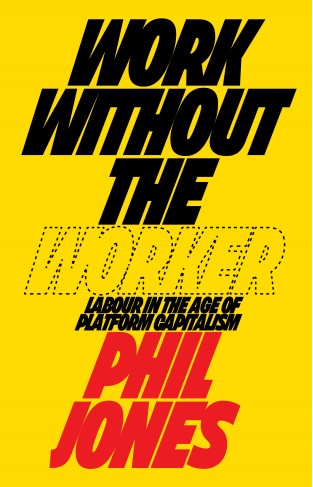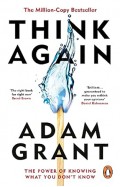Work Without the Worker: Labour in the Age of Platform Capitalism
By: Phil Jones
-
Rs 2,375.75
- Rs 2,795.00
- 15%
You save Rs 419.25.
Due to constant currency fluctuation, prices are subject to change with or without notice.
Automation and the decline in industrial employment have lead to rising fears of a workless future. But what happens when your work itself is the thing that will make your job obsolete?
In the past few years, online crowdworking platforms - like Amazon's Mechanical Turk and Clickworker - have become an increasingly important source of work, particularly for those in the Global South. Here, small tasks are assigned to people online, and are often used to train algorithms to spot patterns, patterns through machine learning those same algorithms will then be able to spot more effectively than humans. Used for everything from the mechanics of self-driving cars to Google image search, this is an increasingly powerful part of the digital ecomomy. But what happens to work when it makes itself obsolete. In this stimulating work that blends political economy, studies of contemporary work, and speculations on the future of capitalism, Phil Jones looks at what this often murky and hidden form of labour looks like, and what it says about the state of global capitalism.
Automation and the decline in industrial employment have lead to rising fears of a workless future. But what happens when your work itself is the thing that will make your job obsolete?
In the past few years, online crowdworking platforms - like Amazon's Mechanical Turk and Clickworker - have become an increasingly important source of work, particularly for those in the Global South. Here, small tasks are assigned to people online, and are often used to train algorithms to spot patterns, patterns through machine learning those same algorithms will then be able to spot more effectively than humans. Used for everything from the mechanics of self-driving cars to Google image search, this is an increasingly powerful part of the digital ecomomy. But what happens to work when it makes itself obsolete. In this stimulating work that blends political economy, studies of contemporary work, and speculations on the future of capitalism, Phil Jones looks at what this often murky and hidden form of labour looks like, and what it says about the state of global capitalism.
Work Without the Worker: Labour in the Age of Platform Capitalism
By: Phil Jones
Rs 2,375.75 Rs 2,795.00 Ex Tax :Rs 2,375.75
Exactly What to Say - The Magic Words for Influence and Impact
By: Phil Jones
Rs 3,685.50 Rs 4,095.00 Ex Tax :Rs 3,685.50
Zubin Mehta: A Musical Journey (An Authorized Biography)
By: VOID - Bakhtiar K. Dadabhoy
Rs 892.50 Rs 1,050.00 Ex Tax :Rs 892.50
The Origins of Political Order From Prehuman Times to the French RevolutioN
By: Francis Fukuyama
Rs 4,045.50 Rs 4,495.00 Ex Tax :Rs 4,045.50
No similar books from this author available at the moment.
Overcoming Anxiety - A Self-help Guide Using Cognitive Behavioral Techniques
By: Helen Kennerley
Rs 897.50 Rs 1,795.00 Ex Tax :Rs 897.50
The Railway Series No. 16 : Branch Line Engines (Classic Thomas the Tank Engine)
By: Wilbert Awdry
Rs 797.50 Rs 1,595.00 Ex Tax :Rs 797.50
Who's Hiding in the Park? - A Felt Flaps Book
By: Axel Scheffler
Rs 1,795.50 Rs 1,995.00 Ex Tax :Rs 1,795.50
Be The Change: Poems to help you save the world
By: Liz Brownlee
Rs 760.75 Rs 895.00 Ex Tax :Rs 760.75
That Memory Book: How To Deal With Distractibility, Forgetfulness And Other Unnerving Hijinks Of The Middle-aged Brain
By: Cathryn Jakobson Ramin
Rs 675.75 Rs 795.00 Ex Tax :Rs 675.75
Finding Gratitude - Simple Ideas That Can Change Your Life
By: Rebekah Lipp
Rs 1,015.75 Rs 1,195.00 Ex Tax :Rs 1,015.75
Think Again - The Power of Knowing What You Don't Know
By: Adam Grant
Rs 2,965.50 Rs 3,295.00 Ex Tax :Rs 2,965.50
Izzy the Inventor and the Unexpected Unicorn
By: Zanna Davidson
Rs 1,100.75 Rs 1,295.00 Ex Tax :Rs 1,100.75
The Inflammation Spectrum - Find Your Food Triggers and Reset Your System
By: Dr Will Cole
Rs 2,205.75 Rs 2,595.00 Ex Tax :Rs 2,205.75
Around the World in 80 Games - A Mathematician Unlocks the Secrets of the Greatest Games
By: Marcus du Sautoy
Rs 3,145.50 Rs 3,495.00 Ex Tax :Rs 3,145.50
Zubin Mehta: A Musical Journey (An Authorized Biography)
By: VOID - Bakhtiar K. Dadabhoy
Rs 892.50 Rs 1,050.00 Ex Tax :Rs 892.50
Work Without the Worker: Labour in the Age of Platform Capitalism
By: Phil Jones
Rs 2,375.75 Rs 2,795.00 Ex Tax :Rs 2,375.75
Exactly What to Say - The Magic Words for Influence and Impact
By: Phil Jones
Rs 3,685.50 Rs 4,095.00 Ex Tax :Rs 3,685.50















-120x187.jpg?q6)










-120x187.jpg?q6)


-120x187.jpg?q6)
























